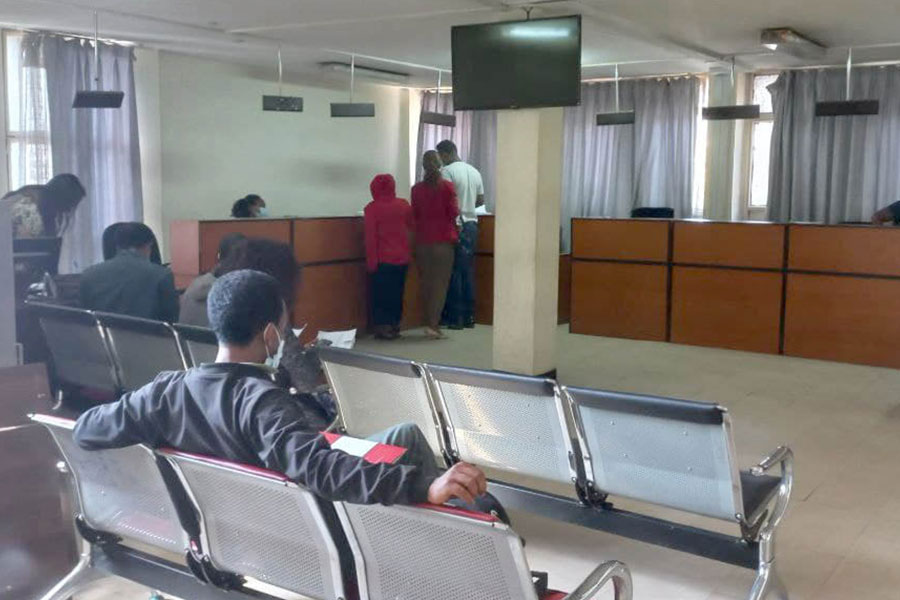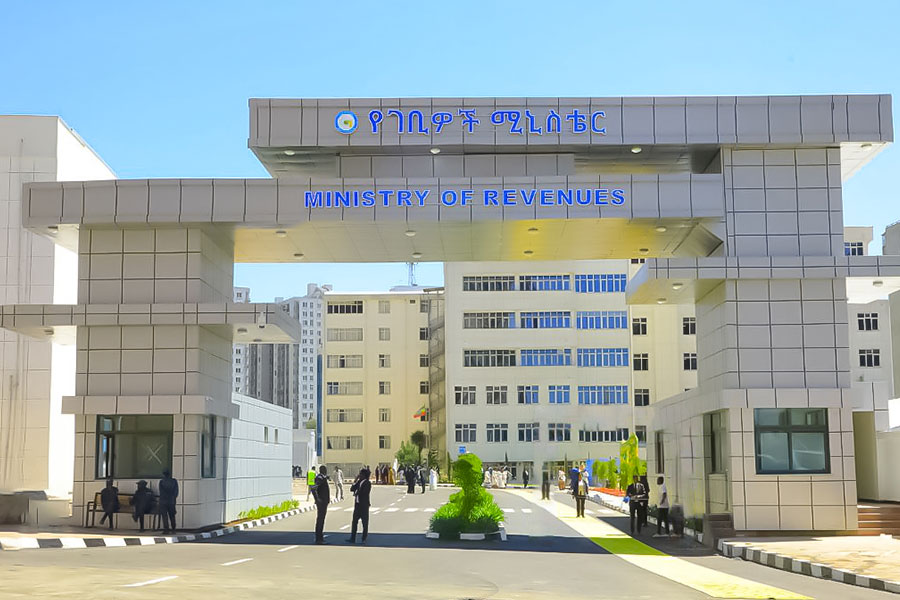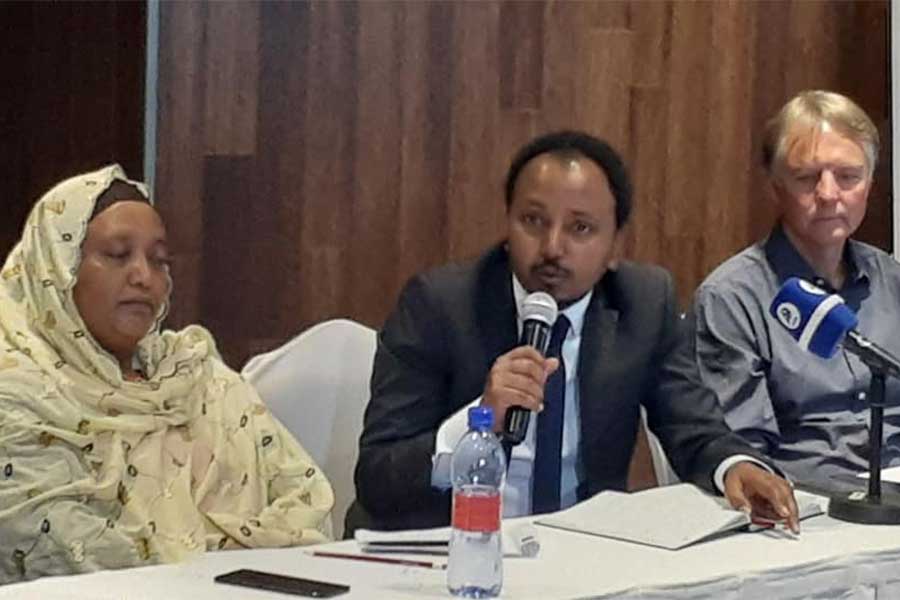
Fortune News | Nov 20,2021
Aug 20 , 2022
By RAHEL BOGALE ( FORTUNE STAFF WRITER )
The federal government availed a tax incentive package to overseas employment agencies expecting to stimulate remittance inflow. The authorities offer agencies signing up more than 500 employment contracts up to three years of tax exemption.
The recruitment agencies must submit proof of contracts from the Ministry of Labour & Skills before applying for the privileges with the Finance Ministry. According to Habtamu Mengesha, director of legal affairs at the Ministry of Finance, the privilege can be extended to six years in exceptional cases.
The scheme is part of a series of legal reforms introduced after the federal government proscribed labour migration to the Middle East nearly a decade ago. In 2013, legislators repealed a law that governed recruitment for overseas employment due to growing domestic violence, labour exploitation, and human rights abuses Ethiopian migrants faced abroad, particularly in the Middle East.
The federal government reinstated the travel ban four years ago after introducing a new law. The previous law required migrants to prove they had completed eighth-grade education. The rule spurred many who could not present proof of education to migrate illegally, exposing themselves to risks and abuses. The revised law allows citizens without formal education to travel so long as they receive training for two months and obtain a certificate of competence.
However, the measure has proved insufficient to address undocumented migration. Since 2017, over 400,000 Ethiopians migrated to the Middle East “illegally”, according to the International Labour Organisation (ILO) estimate.
People familiar with the issue say the absence of bilateral agreements pushing undocumented migration to the Arabian Peninsula.
Seblewengel Felegehiwot is a major shareholder and general manager of Sablina Foreign Employment Agency. Incorporated seven years ago with two million Birr in paid-up capital, her agency sends up to 200 labour migrants to Jordan each year. The minimum monthly salary for migrants who travel through the Agency reached 225 dollars, although it could also rise to 330 dollars.
“We’re ready to send workers to Qatar and Oman,” Seblewengel told Fortune. “We couldn't due to the absence of bilateral agreements.”
Seblewengel attributed the absence of a bilateral deal with Saudi Arabia to driving migrants to travel to the Gulf country “illegally”. Close to 17pc of the two million Ethiopian migrants are believed to live in Saudi Arabia.
Saudi officials have been deporting Ethiopian migrants en masse since 2012 following the passage of a foreign workers’ law. Last year, nearly 100,000 migrants were forcibly repatriated from the country. Over a third of these were women and children.
Ethiopian officials hope to see improved working conditions for migrants after signing bilateral agreements with the United Arab Emirates (UAE), Qatar, and Jordan.
Talks are ongoing with other countries, disclosed Tekle Tesfa, team leader at the Ministry of Labour.
Although overseas employment agencies play a vital role, they are burdened by tasks that require a considerable sum of working capital, says Abreham Melaku, Kelay Foreign Employment Agency general manager. The agencies are required to partner with foreign recruitment companies in the recipient countries. Last year, Parliament approved a law that paves the way for joint ventures between foreign investors and Ethiopian nationals in the overseas employment business.
They are also expected to cover training, insurance, and visa processing fees. The partnering agencies overseas cover travel costs.
Incorporated in 2011 with one million Birr capital, Kelay Foreign Employment Agency sends up to 300 workers annually to Jordan, Qatar, and the UAE. Last year, it paid for return tickets for 15 individuals who decided to return.
Over 1,000 recruiting companies were in business before the outbreak of the pandemic. Most ceased operations due to travel bans imposed globally; 423 agencies are left in business. Seid Ahmed, communications head at the Ethiopian Overseas Employment Agencies Federation, blames “unjustified” corporate tax for some recruitment companies leaving the business.
Under Muferihat Kamil, the Labour Ministry inherited the mandate of issuing permits to recruitment firms last year from the former Ministry of Labor & Social Affairs. Companies are required to deposit 100,000 dollars in a blocked account and register over one million Birr in paid-up capital for eligibility.
Seid argues that the industry requires robust support from the government as it generates foreign currency in the form of remittances.
Formal remittance inflow registered at 4.2 billion dollars last year, slightly more than export revenues. Over a third of this came from migrants in the Middle East, while most of the balance was generated from the United States and Europe. Seid says limited capacity leaves domestic recruitment agencies disadvantaged in securing job opportunities abroad.
Nigerian agencies with a sizable diaspora base played a large role in securing 18 billion dollars last year, making the country the largest remittance recipient in Sub-Saharan Africa. According to the World Bank, India remains at the top of the list, with 89 billion dollars secured last year.
PUBLISHED ON
Aug 20,2022 [ VOL
23 , NO
1164]

Fortune News | Nov 20,2021

Commentaries | Jan 11,2020

Radar | May 25,2019

Fortune News | Sep 10,2022

Commentaries | Jan 04,2020

Fortune News | Jul 23,2022

Radar | Jun 08,2025

Radar | Feb 08,2020

Fortune News | Feb 22,2020

Fortune News | Apr 13,2024

Dec 22 , 2024 . By TIZITA SHEWAFERAW
Charged with transforming colossal state-owned enterprises into modern and competitiv...

Aug 18 , 2024 . By AKSAH ITALO
Although predictable Yonas Zerihun's job in the ride-hailing service is not immune to...

Jul 28 , 2024 . By TIZITA SHEWAFERAW
Unhabitual, perhaps too many, Samuel Gebreyohannes, 38, used to occasionally enjoy a couple of beers at breakfast. However, he recently swit...

Jul 13 , 2024 . By AKSAH ITALO
Investors who rely on tractors, trucks, and field vehicles for commuting, transporting commodities, and f...

Jul 12 , 2025
Political leaders and their policy advisors often promise great leaps forward, yet th...

Jul 5 , 2025
Six years ago, Ethiopia was the darling of international liberal commentators. A year...

Jun 28 , 2025
Meseret Damtie, the assertive auditor general, has never been shy about naming names...

Jun 21 , 2025
A well-worn adage says, “Budget is not destiny, but it is direction.” Examining t...